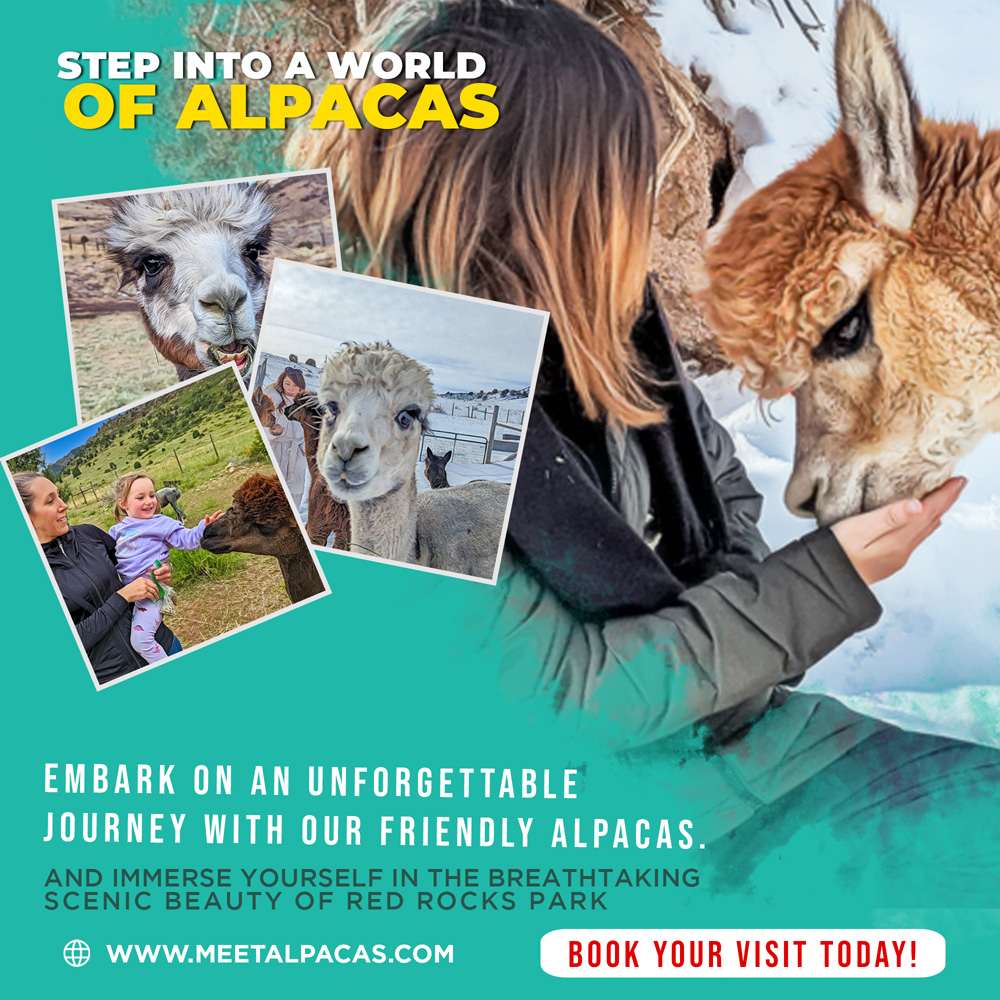Essential alpaca experiences and vacation advices in Colorado: Alpacas are low-maintenance animals that require minimal housing needs and lower veterinary bills than many other types of livestock. They graze, not pull, plants down to the roots, so they help maintain pastures and reduce the need for supplemental feeding. Their padded feet cause less wear and tear on the ground than a horse’s hooves, making them an environmentally friendly alternative to traditional livestock. Shearing and processing the fiber is a huge source of income for alpaca ranchers. They sell raw alpaca fiber to groups that turn it into finished goods and participate in local and national alpaca shows. They may also stud their females (female herd sires) with other alpaca owners for a fee. Discover more info at where to see alpacas in Colorado.

Understanding the economics of alpaca farming before investing in these animals is important. It is also a good idea to engage an accountant or tax specialist for guidance in setting up bookkeeping systems and determining the appropriate deductibles and allowances to apply to your particular situation. Alpacas are herd animals, and they thrive in social environments. They are primarily herbivores and subsist on a diet of grasses and hay, so pasture management is an important part of their overall well-being. Regular health checkups, vaccinations, and shearing are other important aspects of their overall care.
Here’s why an alpaca experience is perfect for your upcoming trip to Denver. Alpacas are adorable, fluffy, and friendly animals. People are often surprised by just how sociable they are and how much they enjoy human affection. They are also incredibly calm creatures with steady temperaments. This makes them perfect for the whole family. They don’t display erratic behavior, making them more predictable around children.
For many years, zoologists assumed alpacas and llamas had descended from guanacos, and they were classified in the genus Lama. However, in a 2001 paper titled “Genetic analysis reveals the wild ancestors of the llama and the alpaca” in the journal Proceeding of the Royal Society B, researchers showed there is “high genetic similarity” between the alpaca and the vicuña, and between the llama and the guanaco. They recommended that the alpaca be reclassified as Vicugna pacos.
Additionally, if you have any accessibility concerns that make hiking impossible, then there are also places to sit down next to the alpacas, which makes this activity available to everyone regardless of their ability or needs. The Smooth Alpaca Experience just so happens to have scenic mountain views of Red Rock Park. Yes, that’s right, the iconic Red Rocks Park and Amphitheatre where hundreds of concerts are held each year. Combine a visit to the venue with an alpaca experience. When you go behind the scenes on the ranch, you learn about much more than just the animals. You have the opportunity to talk about the economy, trade, production, local handmade goods, and so much more.
Are alpacas an “exotic species,” or are they considered simply “livestock?” Alpacas have been raised as domestic livestock for thousands of years. Since the end-product of alpacas is their fleece, like sheep, they are classified as livestock by both the United States and Canadian federal governments. Do alpacas spit? All members of the camel family use spitting as a means of negative communication. They do get possessive around food, and may express annoyance by spitting at other alpacas that they perceive are encroaching on “their” food. Also, they often spit at one another during squabbles within the herd (usually involving two or more males). From time to time alpacas do spit at people on purpose, but it is more common that humans get caught in the crossfire between alpacas, so it’s best to study their behavior and learn to avoid the most vulnerable situations. Discover additional information at meetalpacas.com.
Is it OK to have just one alpaca? No. Alpacas have very strong herd instincts and need the companionship of other alpacas to thrive, preferably three or more. Alpacas are livestock, and should not be treated as house pets. Alpacas should be kept with their own sex with a few exceptions. One exception is that male crias need to be kept with their mothers until weaning. Gelded males should not be housed together with females, as they can repeatedly attempt to breed the females. This can lead to serious health consequences for the females.
What do I need by way of shelter and fencing? Shelter requirements vary depending on the weather and predators in the area. As a rule, alpacas need at least a three-sided open shelter where they can escape from the heat of the sun in summer and from icy wind and snow in winter. Alpacas appreciate good ventilation, and owners have found that large overhangs outside of the shelter are used more often than an enclosed barn. In general, fencing construction and design is dictated by the threat of local predators. Also, fence openings need to be the correct size for alpacas to prevent injury from entangling their neck and limbs.
Adorable, docile and soft, alpacas are prized as pets and cattle around the world. There are no wild alpacas. Alpacas are domesticated versions of vicuñas, South American ruminants that live high in the Andes. Alpacas are related to llamas, which are domesticated versions of another wild Andean ruminant, the guanaco. While llamas are used as pack animals, alpacas are raised mainly for their soft wool. Guanacos and vicuñas are found throughout the Andes Mountains. They are descended from camelids that developed in North America and migrated to South America 3 million years ago, according to Phil Switzer, an alpaca breeder based in Colorado. These animals evolved into guanacos and vicuñas, and about 6,000 years ago, people in the Andes began to domesticate them. There are two breeds of alpaca, the Huacaya and the Suri. Huacaya alpacas are more common, according to Switzer.
